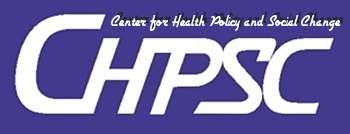share this post
Current health reform and decentralization is occurring against a backdrop of economic uncertainty brought about the economic crisis in 1997 and changes in national leadership. The malaria control program is vulnerable to changes due to decentralization because access to early diagnosis and appropriate treatment of febrile illnesses is the key to controlling malaria morbidity and mortality. The study examined the implications of economic change and decentralization on the malaria control program and inequities in health care at a national, provincial and particularly at the district level.
This is an observational study with a qualitative and quantitative approach. The data collection was done by way of historical analysis, open interviews with key informants and through household survey of households who have had a number suffering from malaria in the last 3 months. Two longitudinal surveys were conducted with a break of one year in between (2001 – 2002) to record changes in access at the household level during the process of decentralization.
The economic crisis has affected the cost of the malaria control program for the government because of an increase in the price of medicines and supplies, and an increase in operational costs including health staff. The availability of funds from the government, both central and provincial, which is made available for the malaria control program in the district of Kulonprogo from year to year has been limited and not enough to implement the program consistently and comprehensively. As a result the control program has been done in a piecemeal way and is dependent on the flow of funds. In the financial year of 2001, there were several budgetary sources for the district of Kulonprogo from international donors, directed at the malaria control program. Fund raising coming from the mobilization of resources and the community was difficult to rely on because the district is relatively poor in natural resources, private investment is rare and the education structure is relatively poor. The effect of the supporting ecology and geography, as well as the piecemeal program for malaria control has caused a great jump in the incidence of malaria from year to year and since 1997 it has been continually spreading to areas which were previously malaria free.
By using income-based social stratification it is possible to describe differences in various dimensions of health status, such as risk, disease, social consequences and access. Risk includes differences in knowledge about malaria and health facilities, differences in guaranteed financing, differences in the impact of the crisis in terms of the burden inflation puts on the household, and poor housing conditions. The perceived severity of malaria illness between the social strata also differs as a result of differences in the material conditions necessary for biological survival including lack of prompt medical treatment. The socio-economic consequence of malaria illness for the household is an inequity of financing. Although the malaria control program and health care provisions are based on the principle of equity, it can still be proven that there is still inequity of access in malaria treatment and the control program. Whereas it has not been proven that the incidence of malaria is influenced by income or the various other social contexts.
Decentralization gives an opportunity for health managers in the regions to manage program funds according to the needs and priorities of the malaria problem in the district. With this transfer of authority, the allocated funds can be prioritized according to analysis of the local situation. Nevertheless, decentralization also contains some threat to the achievement of equity of health care and equality of health status between the various social strata. This threat may occur at least because a. The budget allocation will be dependent on the understanding of the stakeholders or policy actors in the district about the urgency and scope of the malaria problem, so this depends on lobbying by the health sector to other sectors and policy actors, b. The process of restructuring the government from a centralized to a decentralized system which is taking place and the changes in the system and structure of health may take away the attention of the stakeholders at the central and regional levels from the importance of malaria control, c. One implication of decentralization is the privatization of public health facilities. With this change in status, it will be impossible to fully avoid a profit orientation in the determining of fees and in treatment decisions. Although changing the system will not happen drastically, the poorest group is most at risk of not gaining access in the near future and eventually this will influence the inequality of health status of the population.























Comments :
Post a Comment